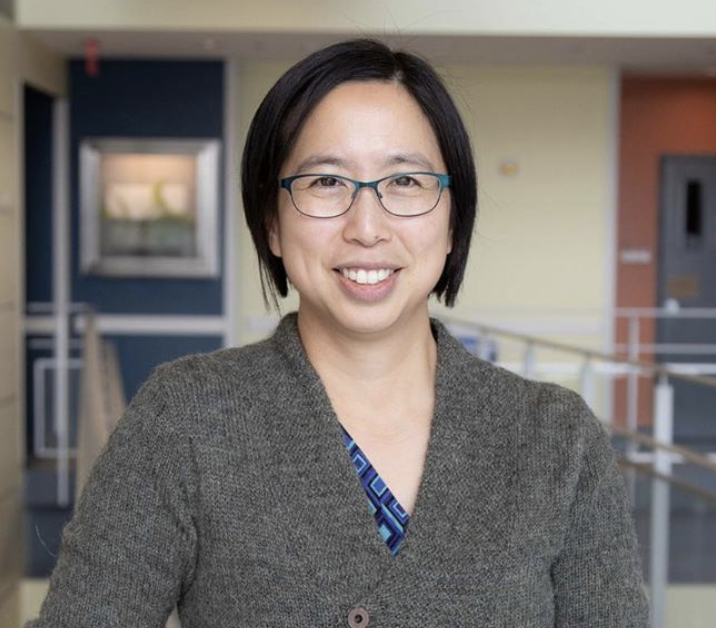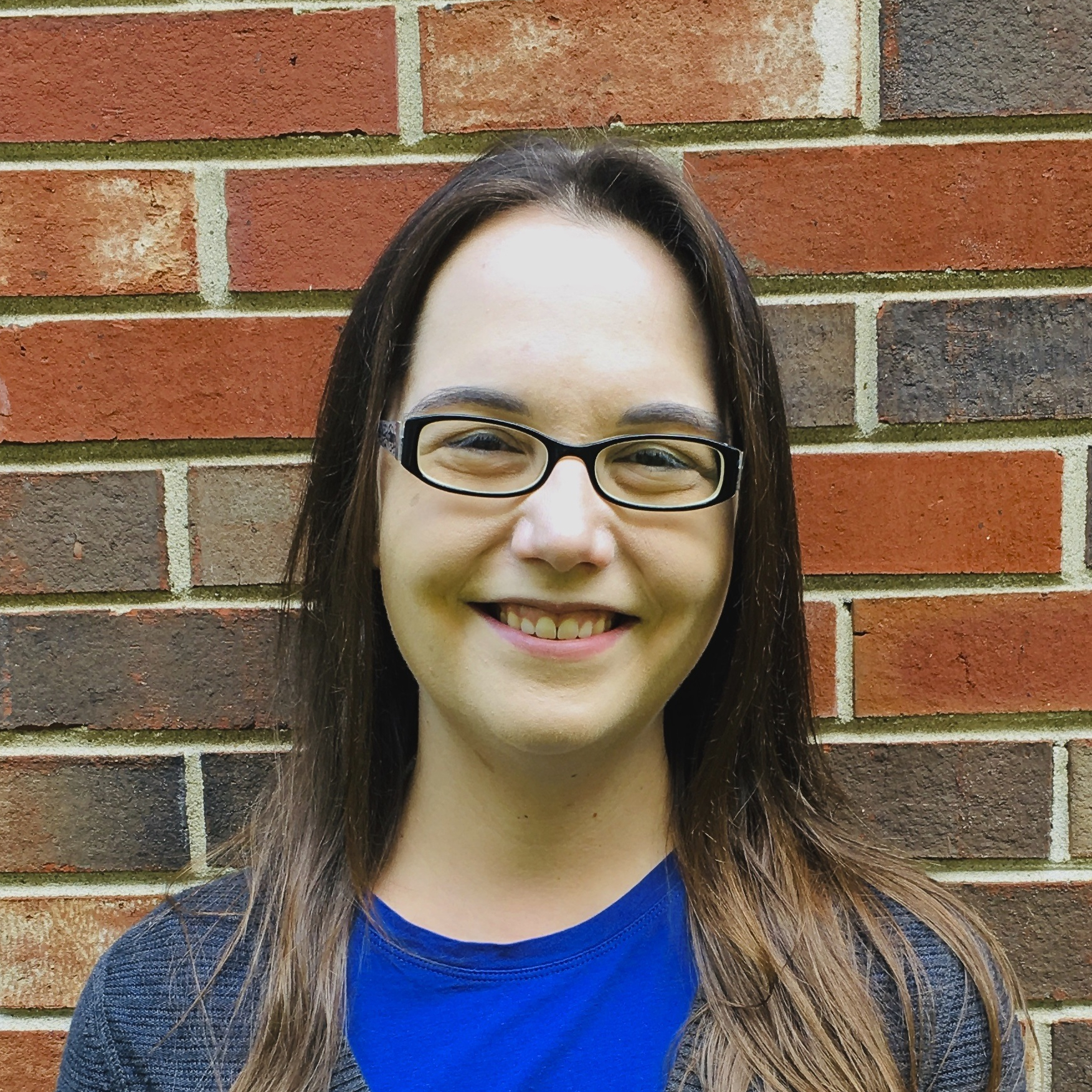Community Spotlight: Suann Yang, PhD
 Suann Yang, PhD, is an associate professor of biology at SUNY Geneseo and a trained community ecologist with a focus on plant-animal interactions. Her scholarly interests also include how the context of interactions among students influences their attitudes toward their learning experiences. Some of her past projects include improving student retention with peer-led workshops, teaching quantitative skills while reducing math anxiety, and developing open educational resources for multidisciplinary sustainability education.
Suann Yang, PhD, is an associate professor of biology at SUNY Geneseo and a trained community ecologist with a focus on plant-animal interactions. Her scholarly interests also include how the context of interactions among students influences their attitudes toward their learning experiences. Some of her past projects include improving student retention with peer-led workshops, teaching quantitative skills while reducing math anxiety, and developing open educational resources for multidisciplinary sustainability education.
Yang has attended BioQUEST summer workshops since 2018 and has been leading Faculty Mentoring Networks (FMN) since 2019. As part of the 2020 BIOME Institute, Yang participated in a working group around how to incorporate issues of social justice into STEM courses–this evolved into leading, with Rachel Pigg, PhD, the Scientists Spotlights FMN, focused on broadening representation by pairing class content with the stories of counterstereotypical scientists.
 Yang and Pigg continued development and implementation of their teaching materials through the FMN and the 2021 BIOME Institute and fall working groups. In the fall of 2021, Yang and Pigg were awarded an NSF RCN-UBE grant, Biologists and Graph Interpretation: Professional development for an online curriculum to foster data literacy and value diverse identities, to continue this work. They’ll continue to utilize FMNs and the QUBES platform to develop and publish their products.
Yang and Pigg continued development and implementation of their teaching materials through the FMN and the 2021 BIOME Institute and fall working groups. In the fall of 2021, Yang and Pigg were awarded an NSF RCN-UBE grant, Biologists and Graph Interpretation: Professional development for an online curriculum to foster data literacy and value diverse identities, to continue this work. They’ll continue to utilize FMNs and the QUBES platform to develop and publish their products.
Yang and Pigg’s work is a fantastic example of how a group of faculty coalesced around a topic of interest and importance, formed learning communities (through our BIOME working groups and FMNs), and worked together to develop and implement curricula that will have a transformative effect on the student experience.
Learn more about the 2022 BIOME Institute and apply by May 10!
How did the BIOME Institute help jumpstart your RCN?
It really was a catalyst for enabling us to implement what we’d been thinking about. It was just the two of us, Rachel and I, in the great, big world, trying to do this thing, and we thought it would be very small and probably not even a noticeable drop into the ocean. But with the BIOME working group, we had a sounding board and were able to try different things, which really allowed us to accelerate the project. In fact, my understanding is that we were the only RCN full proposal that was funded this last time around without going through the incubator stage first, which I realized is really unusual as I talked to more people.
I think that was because we were able to pilot things in the working group, such as the structure for the FMNs. We also had access to a group of people with very diverse expertise and interests and were able to reach all kinds of areas of higher education--community colleges, minority-serving institutions, etc. We had an instant network that I think made our proposal more competitive and has made the project itself more successful as we are working on things now. It's been so natural and easy because we’ve already figured out how to work together, by and large, even as we’ve added a few more team members.
What is special about the BIOME and BioQUEST’s working group and FMN model?
I think what's unique is the ability of the BIOME Institute, BioQUEST, and the QUBES platform to facilitate a supportive network of like-minded individuals, no matter where they are in the country. I’ve been a part of other kinds of professional development that were more local or regional, which has its benefits. But if you’re in an institution where there aren’t other people who teach what you teach, being able to find others that teach the same thing is super helpful. And with the BIOME, I’m able to do this from the low-cost location of my own office.
The structure also helps me stay accountable. I'm probably like other faculty: we're busy, we focus on students first. And sometimes we put ourselves last. By signing up for these online learning communities, I have found that I am able to keep up with exploring innovative ideas and getting the support to implement them. I think that's what makes this model unique.
What experiences in your own teaching have inspired you to incorporate social justice issues?
It’s something I had been thinking about for a long time, and incorporating in my own little small spheres of influence. Then I was asked in 2019 to head our institution’s pre-proposal for HHMI’s Inclusive Excellence program, with a group of staff and faculty from all over the university. We discovered through the process of writing this proposal that we were certainly not as far along as we needed to be, that we had a lot of issues when it came to unintentional biases and the success of students from historically excluded groups, especially in the sciences. That made me more motivated to figure out: How can I implement more systemic change? And I began to seek out more professional development opportunities to understand the issues better, to think about my own identities, my own roles, and how I can use what positions of power and privilege I have to try to make change.
At the same time, BioQUEST also started to push for more awareness, and more of the professional development had explicit social justice learning outcomes for faculty, shifting from inclusive teaching practices to a more anti-racist social justice education. It seems like a subtle distinction, but it's actually pretty different. So that dovetailed with my own motivation and what was happening at my own institution. All of those came together to empower me to actually make changes happen, to be motivated and not scared.
I thought there might be more resistance from colleagues, but the more I get into it, the more I discover that everyone else actually cares about this, too. Having that working group after the BIOME a couple years back was a part of that, to have all those other faculty members who said, ‘Yeah, this is important to me, too.’
What change have you seen in your students since implementing Scientist Spotlights?
We’ve found at our institution that students do a really good job of changing their perceptions. We’re a primarily white institution, so there are two goals: one is to open our students’ eyes to the ways others experience the world. The second is for the students who are in the minority to see that there are a lot of other people out there who are just like them, or who they can relate to.
What’s really cool is that I've been finding that students relate to people of all identities, regardless of if they're the same identity. It doesn't matter so much what your identity is--you can still find something inspiring in one of the counter-stereotypical scientists we feature. One of the things that comes up most often when anyone tells their story is that they didn't know exactly what they wanted to do. A lot of our students can relate to that, and by the end of the semester, they’re able to name scientists, either who we’ve featured in class or who they’ve sought out, whose story they relate to. It's really making students more aware that science is a living thing. It's an active community with lots of different people. So it works.
What keeps you motivated to continue investing in professional development?
I don't know how to articulate it exactly, but I do have this compulsion to always be better. And while I can read books and search the internet and try to find stuff by myself, there is a world of professional development out there, a community of practitioners who have already figured out solutions or are currently figuring out solutions. So accessing these just seems like a very natural, logical thing to do.
I first got into doing professional development for teaching sort of by accident. But I quickly realized that you don’t become a better teacher by accident. You can become a better teacher on purpose. This should be obvious, but it wasn't obvious to me at the time. So when I discovered that you could become a better teacher on purpose, and that the field changes our understanding of how learning in different contexts works, I thought keeping up with all that was and is key.
The rewards far outweigh the cost of the extra few hours a week, sometimes many hours a week that I spend. One of the nice things about being part of FMNs, and the structured faculty learning communities, is that the work I do in them helps me achieve something specific and concrete in my teaching. So it isn't really something extra. It’s something I would be doing anyway, and this way, I'm getting help and support to do it.
It's also fun. It is maybe hard to explain to someone who doesn't get excited about the creative aspects of teaching, but developing curricula, and trying to figure out how to better teach something, so students can have a better grasp or be better connected to some concept–that's really fun for me. I'm still doing it because it's always fun.
Resources
Materials related to Scientist Spotlights:
Social Justice Working Group BIOME 2020 - Scientist Spotlights
Data on Dead Zones and a Scientist Spotlight Featuring Benjamin Negrete, Jr.
Scientist Spotlights and Data Nuggets Workshop Materials (BIOME 2021)
BIOME 2021 Scientist Spotlight/Data Nugget Working Group Video Recap
NSF Abstract: Biologists and Graph Interpretation: Professional development for an online curriculum to foster data literacy and value diverse identities
Other resources:
Project Diversify
2022 BIOME Institute
How can our community get involved?
Subscribe to the BioQUEST/QUBES newsletter to learn about upcoming FMNs and workshops.